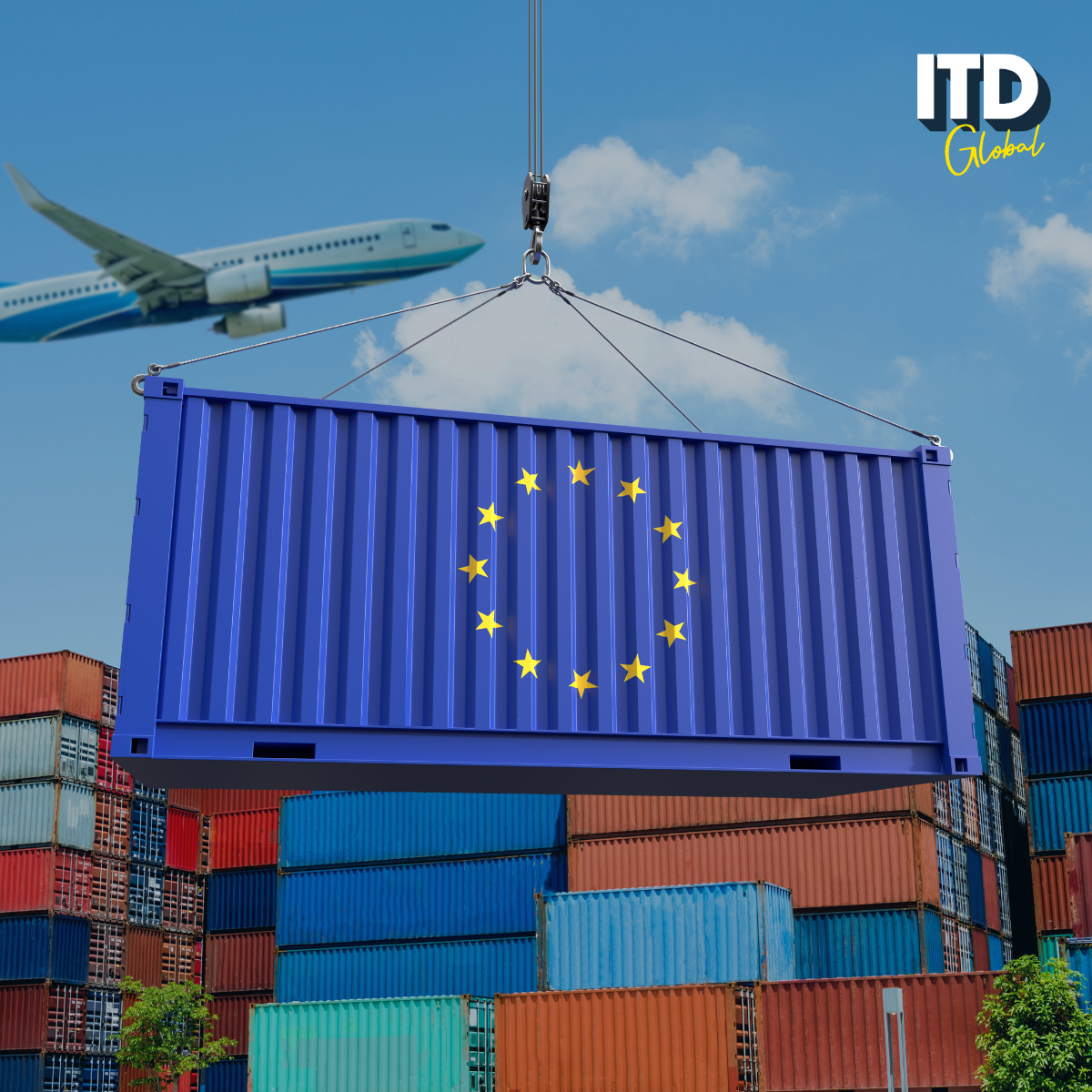Managing customer expectations in the e-Commerce world is a critical factor that can make or break a business. Customers demand not only high-quality products but also seamless shopping experiences that include transparent communication, fast shipping and easy returns. To stay competitive, e-Commerce businesses must prioritise meeting and managing customer expectations effectively.
Let’s explore the strategies that can help your business thrive in the e-Commerce landscape by setting, managing, and exceeding customer expectations from order placement to delivery and beyond.
- Transparency in Communication
Transparency is the bedrock of any successful customer relationship e-Commerce. Today’s customers want to be well informed throughout their shopping experience, from browsing to receiving their orders. This includes:
- Providing clear product descriptions
- Displaying accurate stock levels
- Offering real-time order tracking
- Communicating delivery timelines and any potential delays
Customers expect real-time updates and will quickly lose trust if they feel misled or uninformed. As an e-Commerce business you must ensure your platform offers transparent communication channels that keep customers in the loop.
Key Practices for Transparency:
- Clear Product Information: Ensure that product descriptions, images and specifications are detailed and accurate to avoid customer dissatisfaction upon receiving the order.
- Real-Time Updates: Automated systems that provide updates on order status, shipping information, and delivery times can help alleviate customer anxiety.
- Accessible Customer Support: Make it easy for customers to get in touch if they have any concerns. Offering multiple channels like live chat, email, or phone support ensures customers can reach out on their terms.
2. Setting Realistic Delivery Expectations
The rise of fast-shipping giants like Amazon has set new benchmarks for delivery speed in the e-Commerce industry. Customers now expect faster, more reliable shipping, sometimes within 24 hours. However, it’s essential that your business sets realistic expectations rather than overpromising and underdelivering.
Strategies for Managing Delivery Expectations:
- Accurate Delivery Estimates: Provide clear and accurate delivery timeframes during the checkout process. Avoid promising delivery times that may be challenging to meet, especially during peak periods like holidays or sales events.
- Offer Multiple Shipping Options: Let customers choose from a range of delivery speeds. Some customers may prefer to pay for same-day/next-day shipping, while others may opt for standard delivery. Offering flexibility helps meet diverse expectations.
- Communicate Delays Early: When delays happen, whether it’s due to weather, supply chain disruptions, or other issues – notify customers as soon as possible. Proactive communication can mitigate frustration.
- Managing Expectations During Peak Seasons
e-Commerce businesses experience a surge in demand during peak shopping seasons, as your business may know. Peak shopping seasons like Black Friday, Cyber Monday, and the Christmas holiday period. These times are particularly challenging because while order volumes increase, so do customer expectations for fast, accurate deliveries.
Handling these periods effectively requires careful planning and communication.
Tips for Navigating Peak Seasons:
- Prepare in Advance: Increase inventory and review your logistics strategy well before the holiday rush. This will help you avoid stockouts and shipping delays.
- Set Clear Expectations for Delivery Times: During peak seasons, it’s crucial to inform customers upfront if delivery times may be longer than usual. Managing expectations early can prevent dissatisfaction.
- Use Automation: Automating order processing, warehouse management, and shipping updates can help speed up operations and ensure that orders are fulfilled accurately and on time.
- Offering Flexible Delivery Options
Customers now expect flexible delivery options tailored to their needs. Whether they want fast shipping or prefer to pick up their packages at a local drop-off point, offering multiple delivery options enhances the customer experience.
Best Practices for Flexible Delivery:
- Same-Day or Next-Day Delivery: For customers in need of urgent deliveries, offering same-day or next-day shipping can set your business apart. However, it’s vital to ensure you have the logistics in place to meet these deadlines.
- Click-and-Collect: Some customers prefer to pick up their purchases from a store or designated collection point rather than wait for home delivery. Providing a click-and-collect option can reduce the delivery times and give customers more control.
- Scheduled Delivery Windows: Allowing customers to choose specific time slots for delivery can increase satisfaction, especially for larger or high-value items that may require the recipient to be home.
- Managing Customer Expectations for International Shipping
If your e-Commerce business has a global audience, managing international shipping expectations is essential. Cross-border shipping presents additional challenges, including customs delays, longer shipping times, and varying costs.
Strategies for International Shipping:
- Provide Accurate Delivery Timelines: Be upfront about how long international shipping may take, especially during peak times. Allowing customers to track their packages across borders can help manage expectations.
- Explain Duties and Fees Clearly: Customers often encounter unexpected duties or taxes when ordering from overseas. Clear information on potential additional costs at checkout can prevent surprises.
- Offer Affordable Shipping Options: International shipping can be costly, but providing a range of options – from economy shipping to express services – will give your customers the ability to choose what suits their needs and budgets.
- Easy and Hassle-Free Returns
A straightforward returns process is crucial to maintaining customer trust. Customers may not always be satisfied with their purchase and offering an easy returns process can reduce friction and encourage repeat business. According to studies, a flexible and customer-friendly returns policy can directly influence buying decisions.
How to Simplify Returns:
- Clear Return Policies: Display your returns policy prominently on your website, making sure it’s easy for customers to find. Clearly outline the steps involved and the timeframes for refunds or exchanges.
- Prepaid Return Labels: Offering prepaid return labels makes the returns process easy and convenient for customers. This can also signal to customers that you value their business and care about their experience.
- Quick Refunds: Process refunds or exchanges quickly once the item is returned. Delays in processing refunds can frustrate customers and damage your reputation.
- Personalising the Customer Experience
Personalisation is becoming an expectation in e-Commerce. Customers are more likely to return to a brand that tailors their shopping experience to their preferences, whether that’s through personalised product recommendations or customised shipping options.
How to Implement Personalisation:
- Segment Customers for Targeted Marketing Campaigns: Group customers based on demographics, behavior, or engagement levels, and create specific marketing campaigns that cater to each segment’s unique interests and needs. For example, new customers might receive a welcome package.
- Customisable Communication: Send personalised order updates, offering relevant suggestions based on customer history and preferences. For example, if a customer consistently orders around a peak period, you can notify them about upcoming sales or new products before the season starts.
- Loyalty Programs: Offering incentives like faster shipping or exclusive discounts to repeat customers can foster loyalty and improve the overall shopping experience.
- Proactive Issue Resolution
Mistakes happen in e-Commerce, from incorrect orders to shipping delays. What sets successful businesses apart is how they handle these problems. Customers value honesty and responsiveness, and addressing issues proactively can prevent them from escalating into negative reviews or lost business.
Approaches to Handling Issues:
- Apologise and Provide a Solution: When something goes wrong, acknowledge the issue and offer an immediate solution. Whether sending a replacement item or providing a refund, quick action can turn a negative experience into a positive one.
- Use Data to Predict and Prevent Issues: Monitoring customer feedback and analysing order data can help identify common pain points, allowing businesses to address recurring problems before they impact more customers.
- Offer Compensation: In some cases, offering a discount or free shipping on a future order can be an effective way to rebuild trust after a mistake.
- Leveraging Customer Feedback
To continuously improve and stay aligned with customer expectations, your e-Commerce business should actively seek and act on customer feedback. Whether through post-purchase surveys, reviews, or direct communication, understanding what your customers want can guide improvements in your service and offerings.
How to Use Customer Feedback Effectively:
- Post-Purchase Surveys: Send surveys to customers after they’ve received their orders to gauge their satisfaction with the delivery process, product quality and overall shopping experience.
- Monitor Reviews: Online reviews are a powerful source of feedback. Take time to read and respond to reviews, addressing both positive and negative comments.
- Track KPIs: Key performance indicators (KPIs) such as customer satisfaction scores, net promoter scores, and repeat purchase rates can provide insights into how well you’re meeting customer expectations.
So…
Managing customer expectations in e-Commerce is a multifaceted challenge that requires businesses to be proactive, flexible and transparent. By setting clear expectations, providing real-time communication, offering flexible solutions throughout the customer journey, whether it’s product availability, payment options, or returns, the ability to manage expectation effectively can lead to a stronger reputation, positive customer reviews, and, ultimately, long-term success in the e-Commerce marketplace.
How ITD Global Can Help
ITD Global is a global logistics and supply chain solutions provider that supports e-Commerce businesses in meeting and exceeding customer expectations. With a wide range of services, including multi-carrier delivery options, international delivery solutions, and innovative technology, ITD Global can help your business ensure reliable deliveries worldwide. By leveraging ITD Global’s advanced logistics network, your business can offer flexible shipping options, seamless international delivery all at competitive rates, helping you deliver exceptional customer experiences. For more details on our services, contact us today!








